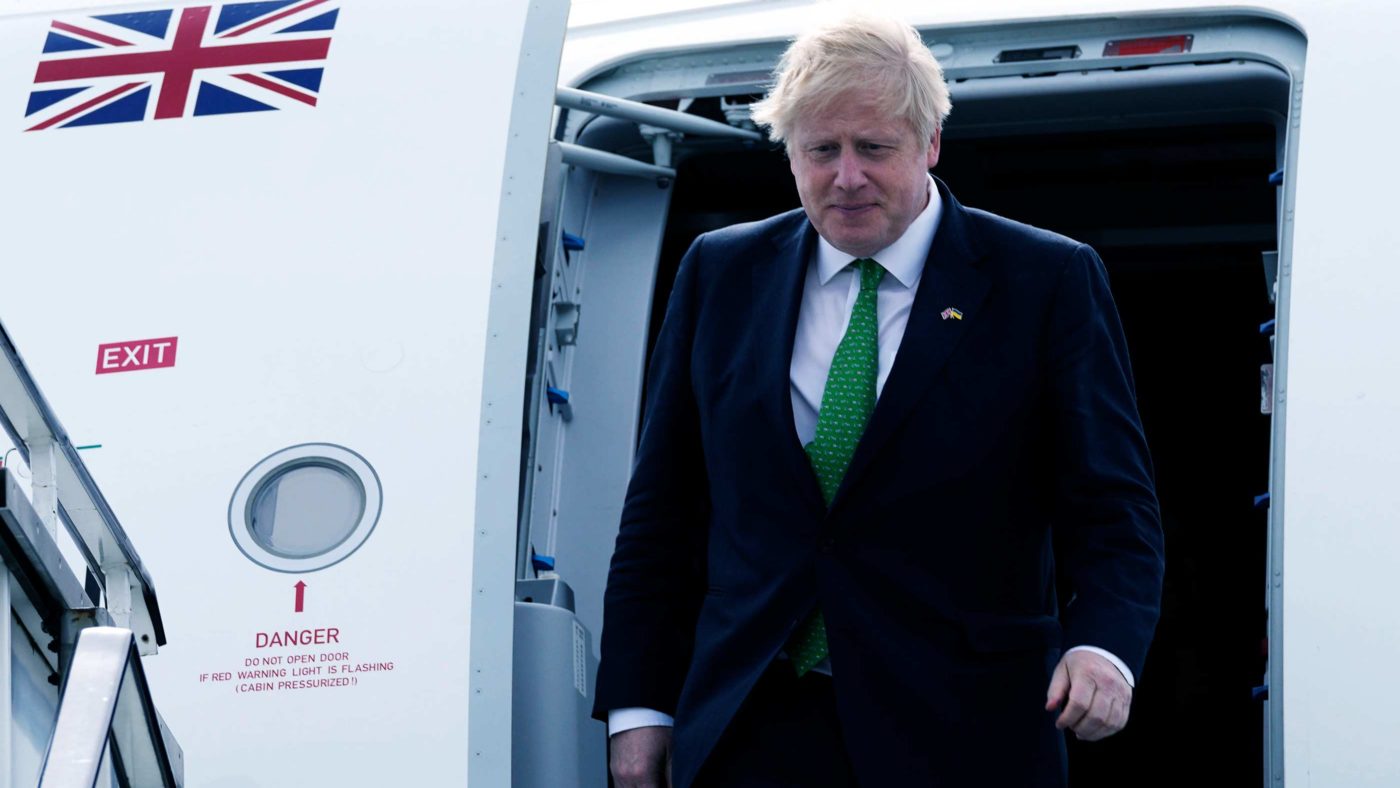In the aftermath of last week’s Stormont election, the Government has focused again on the Northern Ireland Protocol and its potential to derail the province’s devolved institutions. Sinn Fein is due to choose a First Minister on Friday, but the DUP insists it will not nominate a Deputy First Minister until the sea border is dealt with, which means that a power-sharing executive is unlikely to be formed.
The Government has responded to this impending crisis by threatening to scrap parts of the Protocol unilaterally. The Queen’s Speech did not contain any detailed plans for legislation on the sea border, but the Foreign Secretary, Liz Truss, is reportedly about to warn Brussels that it has 72 hours to agree to changes to the Protocol, or the UK will act on its own.
According to The Times, the attorney-general, Suella Braverman, told Boris Johnson yesterday that he is legally entitled to rip up parts of the trade deal because its implementation by the EU is ‘disproportionate and unreasonable’. The newspaper reports that she believes the Protocol has diverted trade and created ‘societal unrest’ in Northern Ireland. These are two of the tests that can justify either party triggering the arrangement’s emergency brake, Article 16.
At a press conference in Sweden, the Prime Minister argued that the Government was bound to act to protect the Belfast Agreement.
‘(The Good Friday Agreement) is crucial for the stability of our country, of the UK, of Northern Ireland, and that means that things have got to command cross-community support. Plainly the Northern Ireland Protocol fails to do that and we need to sort it out.’
This is some of the strongest language that we’ve heard from ministers during the whole protracted Irish sea border saga. However, the Government has appeared before to be on the brink of acting unilaterally, before backing off in the face of coordinated criticism from Brussels, Dublin and pro-EU politicians and journalists.
According to ‘government sources’, Truss wants to remove the European Court of Justice’s powers over Northern Ireland and stop unilateral checks on goods moving from Great Britain into the province. If that description is accurate, it’s in line with Lord Frost and Brandon Lewis’s ‘command paper’ last summer, which set out the UK’s view of how the sea border should operate.
Although it was welcomed warmly by unionists, that document was the minimum that they could accept, if Northern Ireland’s place in the UK’s internal market was to be restored fully. It was also an entirely clear and reasonable offer, in contrast to vague proposals from Brussels, that it claimed would cut checks between Great Britain and Ulster.
The Protocol was originally intended to apply to goods that were ‘at risk’ of entering the EU single market via Northern Ireland. Thanks to Brussels’ inflexibility, and its legalistic interpretation of ‘at risk’, it has applied, instead, to almost every category of product.
Even Simon Coveney, the Republic’s aggressively nationalist foreign minister, conceded yesterday that:
‘We have to differentiate between goods that we know and can prove are staying in Northern Ireland, because they are not a risk to the EU single market, and other goods that come into NI that may go through wholesalers or retailers but end up south of the border.”
Unfortunately, there are few signs that Brussels really intends to take a pragmatic attitude to this issue. Between 0.5% to 0.9% of UK to EU trade crosses the land border between Northern Ireland and the Republic. Despite these trifling figures, Coveney is implying that, if a consumer from Dundalk in southern Ireland bought a UK ready meal from a supermarket in Newry, 14 miles away, it would pose a threat to the single market.
And there are still reportedly members of the Government who remain sceptical about taking action on the Protocol without the EU’s agreement. Rishi Sunak is apparently opposed to unilateral action, presumably on the basis that Brussels may retaliate and damage the economy. Michael Gove, staggeringly, is said to be protective of the deal because he brokered it, despite the absolute shambles it has become.
The Protocol has avid fans in Northern Ireland and beyond too. They see it either as a way of keeping the province tied closely to the EU, even if that’s at the expense of its links with the rest of the UK. Or they hope that it will result in an all-Ireland economy that will hasten an eventual all-Ireland state.
In Brussels, it seems that the sea border is seen as a way of punishing the UK for Brexit or maintaining leverage over the government. This perception will have been strengthened by Emmanuel Macron’s proposed plan to build a multi-speed Europe of ‘concentric circles’, with Britain on the ‘outer ring’.
In recent days, the Government has explained the profound impact that the Protocol has already had in Northern Ireland, as well as the chaos it will cause when grace periods and other mitigations run out. It has made a persuasive case for ripping up sections of this dreadful, misconceived deal.
Chastened by past experience, though, unionists in Northern Ireland will believe that the Prime Minister intends to act only when they see the evidence for themselves.
Click here to subscribe to our daily briefing – the best pieces from CapX and across the web.
CapX depends on the generosity of its readers. If you value what we do, please consider making a donation.


